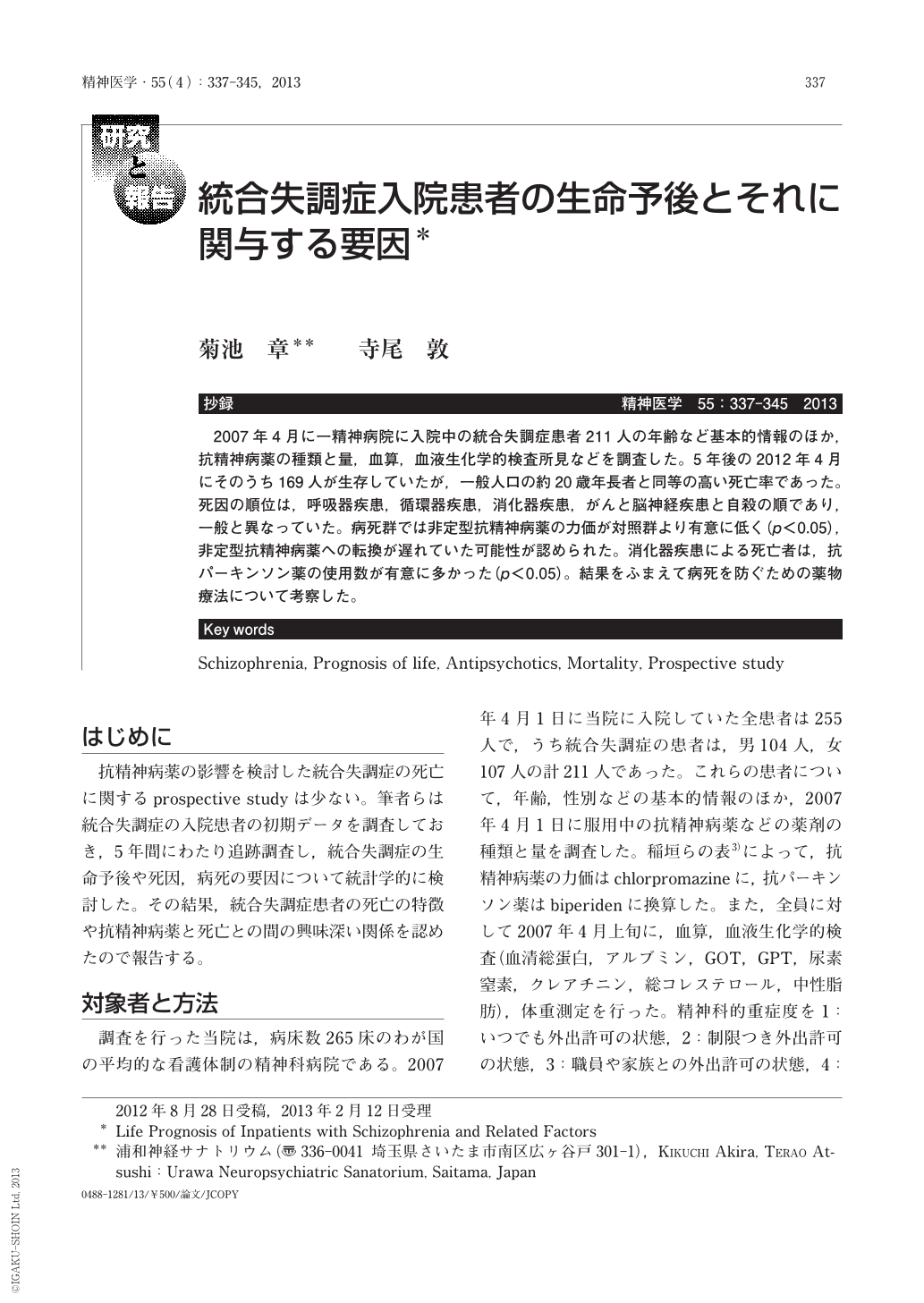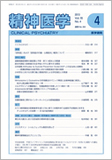Japanese
English
- 有料閲覧
- Abstract 文献概要
- 1ページ目 Look Inside
- 参考文献 Reference
抄録
2007年4月に一精神病院に入院中の統合失調症患者211人の年齢など基本的情報のほか,抗精神病薬の種類と量,血算,血液生化学的検査所見などを調査した。5年後の2012年4月にそのうち169人が生存していたが,一般人口の約20歳年長者と同等の高い死亡率であった。死因の順位は,呼吸器疾患,循環器疾患,消化器疾患,がんと脳神経疾患と自殺の順であり,一般と異なっていた。病死群では非定型抗精神病薬の力価が対照群より有意に低く(p<0.05),非定型抗精神病薬への転換が遅れていた可能性が認められた。消化器疾患による死亡者は,抗パーキンソン薬の使用数が有意に多かった(p<0.05)。結果をふまえて病死を防ぐための薬物療法について考察した。
This study examined 211 inpatients with schizophrenia at a psychiatric hospital in April 2007. We collected basic information including types and doses of antipsychotics, blood counts, and results of biochemical blood tests. Five years later in April 2012, 169 patients were alive. The high mortality rate was similar to people in the general population who were approximately 20 years older than the inpatients. The causes of death were, in order of decreasing frequency:respiratory disease, cardiovascular disease, gastrointestinal disease, cancer, cranial nerve disease, and suicide. This order differed from the general population. Patients who died of disease had significantly lower titers of atypical antipsychotics than the control group(p<0.05), suggesting that there was likely a delay in conversion to atypical antipsychotics. The frequency of antiparkinson drug use was significantly higher in patients who died with gastrointestinal disease compared with the control group(p<0.05). Based on these results, we discuss the use of pharmacotherapy to prevent death from disease in a schizophrenic population.

Copyright © 2013, Igaku-Shoin Ltd. All rights reserved.


